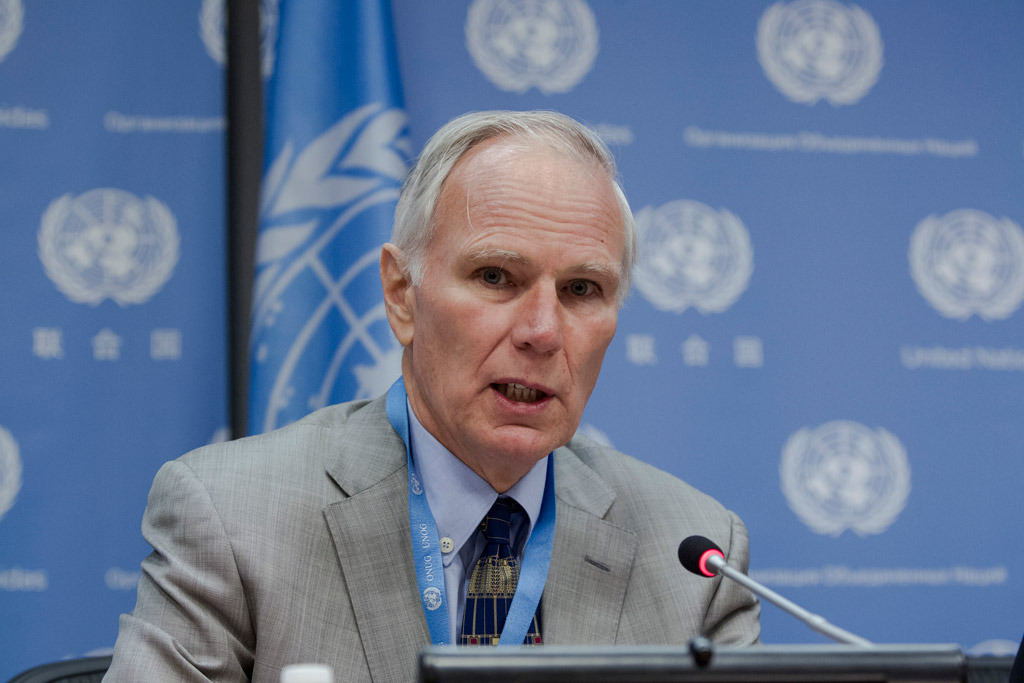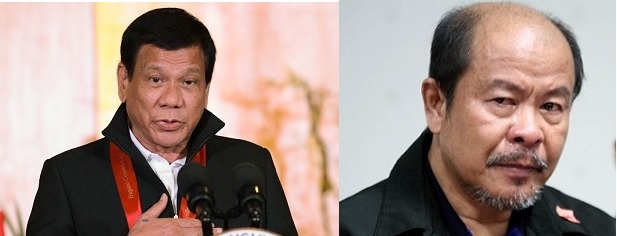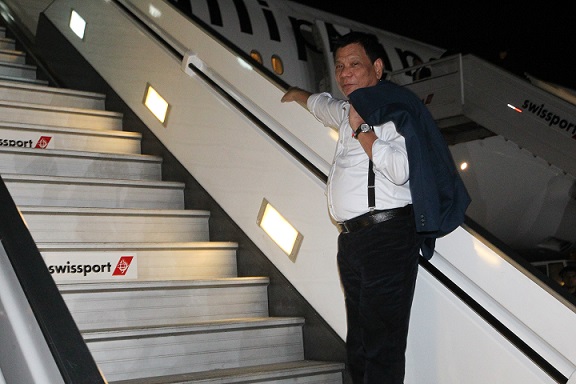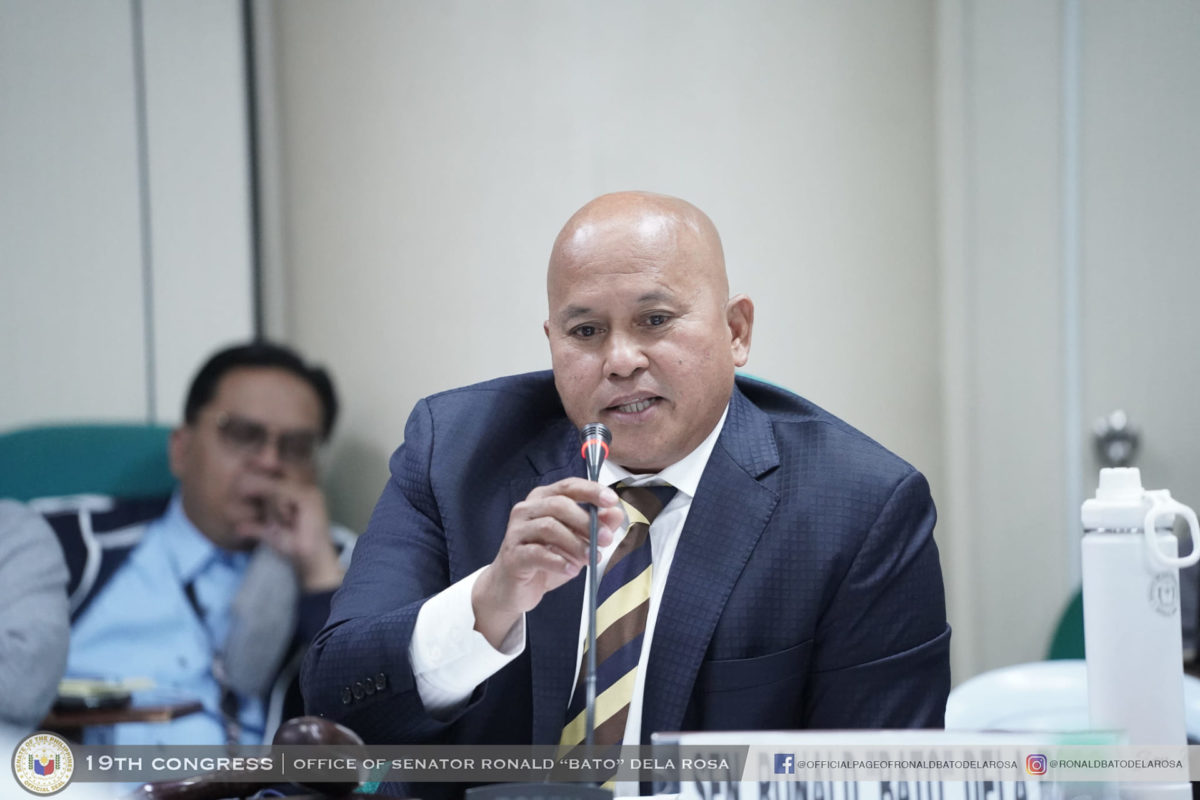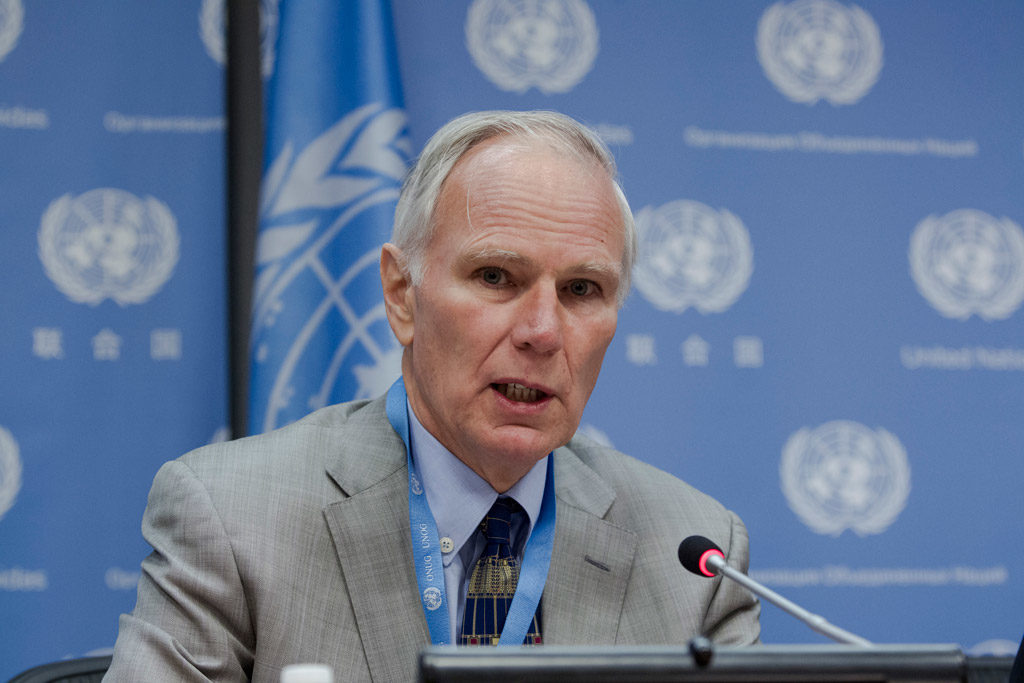
PRESIDENT Rodrigo Duterte is no fan of the United Nations, calling its leader a fool and its experts stupid.
During his speech before the Malacañang Press Corps on Sept. 26, Duterte once again slammed the UN for interfering in his drug war.
He said the international agency had investigated him on the alleged extrajudicial killings in Davao City but came up empty.
STATEMENT:
“Investigate me, but let us follow the Philippine jurisdictional requirements. I’ve been investigated by Philip Alston…we talked…there was no result.”
(Source: Oath-Taking of MPC, MCA and PPA, Sept. 26, 2016. Watch from 17:47-18:08)
FACT: Philip Alston, then the United Nations Special Rapporteur on extrajudicial, summary or arbitrary executions, visited the country in February 2007 to probe human rights violations, including Duterte’s alleged links to the Davao Death Squad (DDS).
He came up with two reports, in 2008 and 2009. In his second report, Alston reported one positive development based on his first set of recommendations:
“Mayor Duterte relinquished his post at the National Police Commission (Napolcom) and his control over the local police’s Task Force Davao on 31 March 2009, amidst the CHRP (Commission on Human Rights-Philippines) investigations into the death squad.”
(Source: Report of the Special Rapporteur on extrajudicial, summary or arbitrary executions, Philip Alston on the Philippines. Follow-up to country recommendations. April 29, 2009.)
Duterte, in his March 31, 2009 letter to then Interior Secretary Ronaldo Puno, tendered his “irrevocable resignation as the Deputized Representative of the National Police Commission,” relinquishing general and operational control over police forces in the city. He said the PNP “can best handle the peace and order of my city.” The letter was published by MindaNews.
Alston said Duterte’s resignation from Napolcom was a partial implementation of his recommendation. Unacted upon was his recommendation for Duterte to take “significant steps to hold the officers commanding those units accountable.”
Alston also found it worrying that impunity has led to death squad killings in other cities since 2007, such as in General Santos City, Digos City, Tagum City, and even in Cebu.
BACKSTORY: During his visit, Alston found it disturbing that a death squad was operating in Davao City. He referred to the DDS as a vigilante group killing with “shocking predictability” criminals, gang members, and even street children in broad daylight.
Alston wrote in his 2008 report:
“One fact points very strongly to the officially-sanctioned character of these killings: No one involved covers his face. The men who warn mothers that their children will be the next to die unless they make themselves scarce turn up on doorsteps undisguised.”
The UN cited reports of civil society organizations saying 553 had been killed from 1998 to 2007. He said assuming the count was accurate, comparing that with police data, Alston calculated roughly half of murders in Davao were committed by the DDS from 2003 to 2006.
Alston interviewed Duterte, calling him an “authoritarian populist.” He summarized their talk this way:
“While repeatedly acknowledging that it was his ‘full responsibility’ that hundreds of murders committed on his watch remained unsolved, he would perfunctorily deny the existence of a death squad and return to the theme that there are no drug laboratories in Davao.
The mayor’s positioning is frankly untenable: He dominates the city so thoroughly as to stamp out whole genres of crime, yet he remains powerless in the face of hundreds of murders committed by men without masks in view of witnesses.”
In his 2008 recommendation, Alston said the death squad in Davao City must end.
“Napolcom should withdraw the mayor of Davao City’s powers of supervision and control of PNP (Philippine National Police) units within his jurisdiction and should hold the officers commanding those units accountable.”
In his succeeding report in 2009, Alston said the “most troubling development” was the rise in death squad killings, with death squad members “bold enough to sell their services (for) only about 5,000 pesos (about US$ 100).”
“The Special Rapporteur is not aware of a single conviction for a death squad killing in Davao. As a result, death squad members operate with complete impunity….the Mayor of Davao City has done nothing to prevent these killings, and his public comments suggest that he is, in fact, supportive.”
Sources:
Report of the Special Rapporteur on extrajudicial, summary or arbitrary executions,Philip Alston on the Philippines. April 16, 2008.
Report of the Special Rapporteur on extrajudicial, summary or arbitrary executions, Philip Alston on the Philippines. Follow-up to country recommendations. April 29, 2009.
Duterte resigns as deputized Napolcom rep, Mindanews. March 31, 2009.
